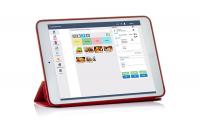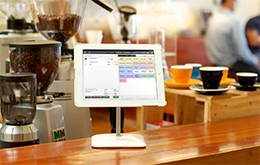7 Types of Retail Shopper and How to Sell to Them

Probably one of the most exciting things about working in retail is the chance of meeting wide array of customers. As someone who runs a retail store you are well aware that there's no single approach to convert shoppers to buying customers, but narrowing them down into several types would allow you to tailor a programme or an approach that would increase the chance to entice them to make in-store purchase.
To help you with these process we have listed down the common types of retail shoppers you might encounter on a daily basis and tips on how to successfully sell to them.
1.The Deal Hunter
The name speaks for itself. These type of shoppers are always on the hunt of the items on sale or search items with the lowest price. They expects to get items worth AED 2,000 with AED 1,000.
How to sell to Deal Hunters
Always have an area for Sale Items. You can also try to gamify the purchase process like what Shopify did by creating QR codes and let the deal hunter play a little to get his discounts.
Exercise selling complementary products on bundle, (Product Bundling) cause oftentimes shoppers see this as a deal. They might be getting it in a little higher price but it's much economical than buying two items in separate purchase.
Why not try to sell based on value, convince shoppers the amount of money they can save in the long run in buying your product.
Deal Hunters are hard to keep. They don't usually have an emotional attachment to any brand. One way to win them is to provide them an excellent customer service, something that they might not find from other retailers.
2. The Well-Informed Shopper
Most of today's shoppers before they make a significant purchase, they've done an in-depth information gathering either getting an insight from family and friends who use the products or to check their opinion about a certain brand's customer service, check online forums, reviews and even comparison sites.
Before they might go to your stores they are already equipped with informations that even your sales associates might barely have no I-DE-A .
What can I do about it?
Establish a trust in the early stage of buying process. Get into the roots or channels where your customers sourced out these informations.
Be Savvy on Social Media, in order to spot unexpected issues and opportunities. Check comparison sites and gather information such as which brand you are being compared to.
Be a well-spoken Evangelist
In this modern setup of retail the ability of your Sales Associate to communicate still stands out as the most important skill, but they should have a solid product knowledge.
3. The Showroomer
Have you seen a shopper with a mobile in hand roaming around your retail store checking out item? This type of shoppers are showroomer, they tend to run a price comparison and buy a cheaper version to your competitor or online.
How can I deal with it?
How to pick them in the crowd? We all know the likely age of showroomers, It's those pesky device addicted millenials right? WRONG! According to the generational cohort research of Neil Howe and William Strauss, GenExers, people aged 30-34 are savvier, resourceful breed compared to THE ME ME ME ME Generation Millenials and Overspending Baby Boomers.
How to win them?
Identify the products that are vulnerable for showrooming. For sure it's not a Potato, we're not talking about potatoes, because we know that the price of this vegetable would likely be similar to what is offered in different supermarkets, so what are the products that are in peril? It could be electronics, mobile phones,clothes and the likes.
So what can you do about it? Create a compelling retail experience, and retail staffs play a great role in its success. Hire fantastic staffs that are friendly and helpful.
If you can, start launching your own private label, something that shoppers cannot buy in Souq and Noon. Consider the idea of becoming an omnichannel Retailer establish a presence where your customers are.
4.Just looking around Shopper
There is no question that Sales Staff should be train to engage your customer to boost sales and gain customer loyalty, but for this type of shopper a simple acknowledgement is enough and after that they should be better left alone.
Some shoppers tells sales staff that they're just browsing because they want to avoid the annoying pushy sales tactics. They might know what they want and wanted the buying process as a painless experience.
You can also ask them questions like Can I help you? If they decline you can just genuinely reply, "Alright! I'll just be around just in case you need help." Respect the space they need and let the store display and beacon do the talking.
5. Mission Driven Shopper
This type of shoppers knows exactly what they want. They go to the store and go straight to the product they wanna buy. Better not go on their way and try to upsell the product. If they ask for help,give straight answer.
Since they spent short time shopping, they expects lesser time in the checkout counter. If you've seen that there's a long queue of customers initiate an off the counter checkout with your handy or mobile POS system.
6.The Indecisive Shopper
I can confidently say that most indecisive shopper are women. They are the people that either don't know which exactly what they want, or they know what they want but they are overwhelmed with lots of products to choose from.
How to win these shoppers?
Ask them what they need, and try to be a consultant. Don't push your product to them unless it is the best fit for their needs or don't tell a shopper that she looks good in that dress when you know she looks thrice as her age. It's good to be nice but its better to be honest.You might have a Sale for a day but you loss them for life.
7. The Regular Customers
They are probably the type of shoppers retailers love the most.
Seasoned Retailers know that it is costlier to attract new customers than retain existing ones. That is why treating your customer right after they buy is just as important as it is before they make a purchase.
One way to keep them coming back is to say Thank you and reward them.
Make a loyalty program. It's great idea to have level of loyal customers. Example: Platinum, Silver and Gold customers based on points they've achieved. They need to feel the difference and appreciation of staying loyal to the brand.Also see to it that you always have the products they regularly buy on stock.
The Ultimate goal is to make your regular customers to a brand-driven customers.
It seems like there's a lot to chew, but enable for you to create a great approach you have to identify first and define the type of customers and their behavior.
Do you have other types of shoppers you encounter on your store? Comment on our blog, we love to hear from you.




- No comment





